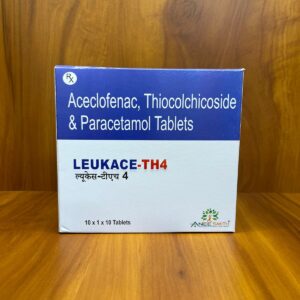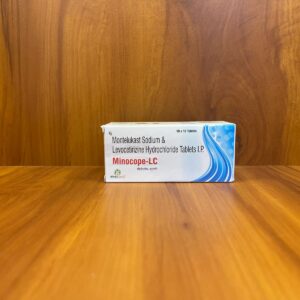Description
(ENITHROMAX -250) Azithro 250mg Tablet
Overview and Information
Uses: Azithro 250mg Tablet is an antibiotic used to treat various bacterial infections, including those affecting the:
- Respiratory tract (such as bronchitis or pneumonia)
- Ear, nose, and throat (such as sinusitis)
- Lungs
- Skin and eyes
- It is also effective in treating typhoid fever and certain sexually transmitted infections like gonorrhea.
How to Use:
- Azithro 250mg Tablet is taken orally, preferably one hour before or two hours after a meal.
- It should be taken regularly at evenly spaced intervals, as prescribed by your doctor.
- Do not skip doses or stop the medicine early, even if you feel better, as doing so may allow the infection to return or worsen.
Common Side Effects:
- Nausea
- Vomiting
- Stomach pain
- Diarrhea
- Headache
These side effects are usually mild and temporary but consult your doctor if they persist or are concerning.
Precautions:
- Do not use Azithro 250mg Tablet if you have a history of cholestatic jaundice or liver issues related to azithromycin use.
- Inform your doctor about any allergies or heart conditions before starting the medication.
- Pregnant or breastfeeding women should consult their doctor before using Azithro 250mg.
Benefits of Azithro 250mg Tablet:
- Azithro 250mg Tablet treats various bacterial infections, including those in the blood, brain, lungs, bones, joints, urinary tract, stomach, and intestines.
- It can also be used for sexually transmitted diseases like gonorrhea.
- The medicine works by stopping the growth of bacteria and eliminating the infection when taken as prescribed.
Side Effects of Azithro 250mg Tablet:
- Most side effects do not require medical attention and go away as the body adjusts to the medication.
- Common side effects include:
- Diarrhea
- Headache
- Nausea
- Abdominal pain
If these side effects persist or worsen, consult your doctor.
How Azithro 250mg Tablet Works:
Azithro 250mg Tablet is an antibiotic that inhibits the synthesis of proteins needed by bacteria to function and grow. By stopping protein production, it prevents the bacteria from multiplying and spreading, effectively treating the infection.













